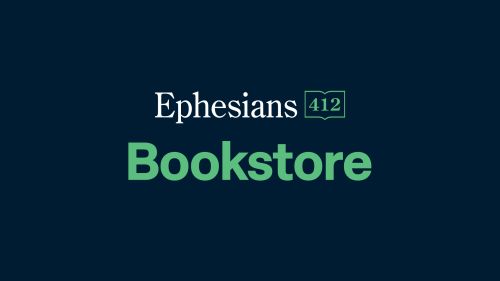Have you ever read something in God’s word and not been sure that you want to believe what you just read? Like something just didn’t sit well with you? I have. I’ve read a lot of things in the Bible that rub against my sensibilities. Often I encounter passages that are hard to reconcile with what I already believe about the world, or verses that I just don’t want to accept.
But as a Christian, our faith and our understanding of everything should be built on the Bible. Scripture should inform what we believe about culture, about God and spirituality, about sexuality and relationships, work and home life. Every space that we exist in should be shaped by our understanding of God’s word. So when we read something in Scripture that doesn’t sit well with us, we have to do something with that. And here we arrive at a fork in the road: trust that what scripture teaches is true, or chalk it up to an antiquated, culturally irrelevant half-truth from which we can glean our own truth. “Cultural Christianity” is constantly filing the Bible under the latter, while Biblical Christianity forever rests in the former. There has to be trust in what scripture says is true, regardless of whether I like it or not, or whether or not it makes perfect sense.
My aim in writing this is to help grow your trust in the Bible as the authority for our lives. I want to provide three reasons which help us to adequately frame Scripture as our highest objective authority. As Christians, and by God’s grace, these three reasons will encourage a deeper rest in the primacy of scripture.
We are Fallen Creatures.
Fundamental to our understanding of the gospel is the picture of our impossible condition before God and the affliction that sin bears on each and every one of us. Perhaps the most sobering moment in the life of a Christian is the very first time we truly see our sin and our rebellion at the foot of the Cross. Romans 3:10-12 says, “None is righteous, no, not one; no one understands; no one seeks for God. All have turned aside; together they have become worthless; no one does good, not even one.” It is essential that we carry this portrait with us as we grow in our faith. Our hope is in the work of Jesus because we cannot please God without him.
Holding the truth of our sin in view, how can we possibly trust our own sensibilities over what the Bible says? Why should our experiences and emotions be the standard that the Bible is held to? It shouldn’t! The Christian, while saved by God and clothed in the righteousness of Christ, is far from perfect. He is still a fallen creature infected by sin. We trust the Bible beyond our own sensibilities and feelings because our sensibilities and feelings cannot always be trusted! The Bible is objective. The Bible is our authority because we are not qualified to be. But we can rest in the hope that it’s author is qualified and is perfect.
We are Finite Creatures
An obvious truth is that we are finite. Specifically as regards our intelligence, our logic, and abilities to reason. There are limitations to what we can know, what we can understand, and how much we can comprehend. There are brilliant men and women in the world that have done remarkable things with the gift of knowledge and its application. But the greatest brain that has ever lived is nothing compared to the infinite knowledge of God. The profound irony of the pursuit of knowledge is that the more and more we begin to understand the intricacies of a human cell, the breadth and vastness of the cosmos, or the most complex mathematical proofs, the more and more we begin to understand how very much we do not know.
In Job 38, God answers a challenge by Job with these words, “Who is this that darkens counsel by words without knowledge? Dress for action like a man; I will question you, and make it know to me. Where were you when I laid the foundations of the earth? Tell me, if you have understanding...Or who shut in the sea with doors when it burst out from the womb, when I made clouds its garment and thick darkness its swaddling band...Have you commanded the morning since your days began, and cause the dawn to know its place, that it might take hold of the skirts of the earth, and the wicked be shaken out of it?...Have you entered into the springs of the sea, or walked in the recesses of the deep?”
How can we say that we know better than God when these are his questions to our masks of superiority? When God’s word lays out for us God’s design for sexuality or worship, what arrogance is it to say that we have a better way! We wouldn’t trust a toddler behind the wheel of a car, so why do we trust ourselves over God where the Bible is concerned? There will be texts that are hard. There will be times where two or more truths in scripture must be held in tension, and we won’t be able to fully reconcile in our finite minds the depths of everything we ever hope to know. But how small a faith would it be if we could? How inglorious would it be if we could fully understand the depths of who God is and what he has created? We can rest in the knowledge that our God is a great and infinite God, and that he is a loving father who desires for us joy and satisfaction.
God Loves Us
Soldiers don’t lay down their lives for a country they hate or are indifferent to. All you have to do to see the love God has for humanity is to look at the cross. A God that doesn’t love us would not have send his Son to die the most excruciating death imaginable for a people he was indifferent to. God’s perfect love was on display at the cross and in Jesus drinking the cup of wrath that we earned. Why would this love cease at his designs in scripture? Why would Jesus bear the weight of the world's sin only to condemn us to a life of joyless rule keeping?
The hardest truths in scripture are the most important ones we can dwell on. You see, those are the ones where our sin and our limitations are preventing us from experiencing the joys of chasing what is truly best for us. Those are the spaces where our sin blinds us to what true joy looks like. In his word, God has given us design and direction toward that true joy. We can rest in the authority of Scripture because we know that it is in our greatest interest to do so.
The next time that you arrive at that fork in the road, remind yourself of who you are and who God is, and no amount of text-twisting or mental gymnastics can produce a deeper, more satisfying joy than that which God has already provided.




